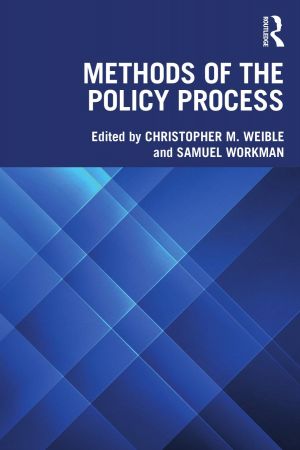
English | 2022 | ISBN: 1032215720, 978-1032215723 | 301 pages | True PDF | 19.18 MB
The increasingly global study of policy processes faces challenges with scholars applying theories in radically different national and cultural contexts. Questions frequently arise about how to conduct policy process research comparatively and among this global community of scholars. Methods of the Policy Process is the first book to remedy this situation, not by establishing an orthodoxy or imposing upon the policy process community a rigid way of conducting research but, instead, by allowing the leading researchers in the different theoretical traditions a space to share the means by which they put their research into action.
This edited volume serves as a companion volume and supplemental guide to the well-established Theories of the Policy Process, 4th Edition . Methods of the Policy Process acknowledges that growth and advancement in the study of the policy process is dependent not merely on conceptual and theoretical development, but also on developing and systematizing better methodological approaches to measurement and analysis. To maximize student engagement with the material, each chapter follows a similar framework: introduction of a given theory of the policy process, application of that theory (including best practices for research design, conceptualization, major data sources, data collection, and methodological approaches), critical assessment, future directions, and often online resources (including datasets, survey instruments, and interview and coding protocols). While the structure and focus of each chapter varies slightly according to the theoretical tradition being discussed, each chapter's central aim is to prepare readers to confidently undertake common methodological strategies themselves.
Methods of the Policy Process is especially beneficial to people new to the field, including students enrolled in policy process courses, as well as those without access to formal training. For scholars experienced in applying theories, this edited volume is a helpful reference to clarify best practices in research methods.
Links are Interchangeable - No Password - Single Extraction



